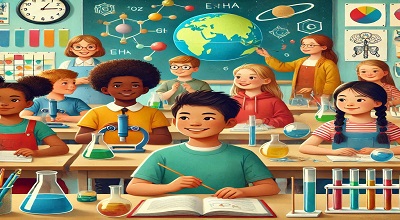Learning Experience
A learning experience refers to any situation, activity, or event in which an individual acquires new knowledge, skills, insights, or understanding. Learning Experiences can take place in various settings, including formal education environments like classrooms, online courses, and training programs, as well as informal settings such as everyday life, work, and personal experiences.
Key characteristics of a learning experience include:
Knowledge Acquisition: Learning experiences involve the acquisition of information, facts, concepts, or ideas. This can be through reading, listening, observing, or actively participating in an activity.
Skill Development: Learning often involves the development of practical skills or competencies. This can include hands-on activities, practice, and application of knowledge.
Reflection: Effective learning experiences often include opportunities for reflection and critical thinking. This allows learners to make connections between new information and their existing knowledge, leading to deeper understanding.
Feedback: Constructive feedback and assessment are important components of learning experiences. Feedback helps learners understand their progress and identify areas for improvement.
Engagement: Engaging and interactive experiences tend to be more effective for learning. Active participation and involvement in the learning process can enhance retention and understanding.
Context: Learning experiences are often influenced by the context in which they occur. Different settings and situations may require different approaches to learning.
Personalization: Tailoring learning experiences to the needs and preferences of individual learners can enhance their effectiveness. Personalized learning takes into account a learner’s prior knowledge, learning style, and goals.
Emotion and Motivation: Emotions and motivation play a significant role in learning. Positive emotions and intrinsic motivation can enhance the learning experience, while negative emotions or extrinsic motivation may hinder it.
Learning experiences can vary widely in terms of format, duration, and goals. They can range from formal classroom lectures to hands-on laboratory experiments, from workplace training sessions to self-directed learning through online resources. The quality and effectiveness of a learning experience often depend on factors such as the expertise of the instructor or facilitator, the relevance of the content to the learner’s goals, and the degree of active engagement and reflection involved.
